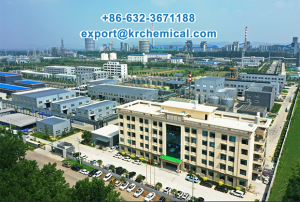Vapor phase corrosion inhibitors (VPCIs), also known as volatile corrosion inhibitors (VCIs), are a type of chemical compound used to protect metal surfaces from corrosion. These inhibitors work by vaporizing and then condensing on metal surfaces to form a thin, protective film that prevents corrosion. Here’s a detailed look at VPCIs:
How VPCIs Work
- Vaporization and Dispersion:
- VPCIs are designed to vaporize at low pressures and temperatures. When introduced into an enclosed space, they disperse as vapor molecules and spread throughout the environment.
- Adsorption and Film Formation:
- Once the vaporized molecules come into contact with metal surfaces, they adsorb onto the surface and form a thin, molecular-level protective layer. This layer acts as a barrier, preventing corrosive agents (such as moisture, oxygen, and salts) from reaching the metal surface.
- Protection in Enclosed Spaces:
- VPCIs are particularly effective in enclosed or semi-enclosed spaces where they can maintain a concentration of vapor around the metal surfaces, ensuring continuous protection.
Applications of VPCIs
- Packaging and Storage:
- Metal Parts and Equipment: VPCIs are widely used in the packaging of metal parts, machinery, and tools for storage and shipping. The inhibitors provide protection against corrosion during transit and storage.
- Military and Aerospace: VPCIs are used to protect sensitive equipment and components that may be stored for long periods under varying environmental conditions.
- Automotive and Industrial Applications:
- Automotive Parts: Engine parts, gears, and other metal components are often protected with VPCIs to prevent rust and corrosion during storage and transportation.
- Industrial Equipment: VPCIs are used in various industrial applications to protect machinery, equipment, and metal structures from corrosion.
- Electronic Components:
- Circuit Boards and Connectors: VPCIs are used to protect electronic components and circuit boards from corrosion, which can be critical in maintaining the functionality and longevity of electronic devices.
- Construction and Infrastructure:
- Reinforced Concrete: VPCIs can be used to protect steel rebar in concrete structures from corrosion, extending the lifespan of buildings, bridges, and other infrastructure.
Types of VPCIs
- Organic VPCIs:
- Organic compounds such as amines, amine carboxylates, and other nitrogen-based compounds are commonly used as VPCIs. They are effective in forming protective films on metal surfaces.
- Inorganic VPCIs:
- Inorganic compounds, such as nitrites and phosphates, can also act as VPCIs. These are less common than organic VPCIs but can be used in specific applications.
- Combination VPCIs:
- Some products combine VPCIs with other corrosion inhibitors or protective agents to provide enhanced protection and versatility for different environments and applications.
Advantages of VPCIs
- Ease of Application:
- VPCIs are easy to apply, often requiring simple packaging or enclosure methods to ensure protection. This makes them cost-effective and convenient for a wide range of applications.
- Comprehensive Protection:
- VPCIs provide uniform protection across the entire surface of the metal, including hard-to-reach areas, ensuring comprehensive corrosion inhibition.
- Non-Invasive:
- The protective film formed by VPCIs is typically thin and non-intrusive, meaning it does not interfere with the normal function of mechanical or electrical components.
- Reversible:
- In many cases, the protective layer formed by VPCIs can be easily removed, making them suitable for temporary protection during storage and transport.
Limitations and Considerations
- Environmental Factors:
- The effectiveness of VPCIs can be influenced by environmental factors such as temperature, humidity, and the presence of other chemicals. It’s important to choose the right VPCI for the specific conditions.
- Enclosed Spaces:
- VPCIs are most effective in enclosed or semi-enclosed spaces where the vapor can remain concentrated around the metal surfaces. In open or highly ventilated areas, their effectiveness may be reduced.
- Compatibility:
- Compatibility with different metals and materials should be considered to avoid any adverse reactions or reduced effectiveness.
In summary, vapor phase corrosion inhibitors (VPCIs) are versatile and effective compounds used to protect metals from corrosion by forming a protective vapor barrier. Their ease of use, comprehensive protection, and non-invasive nature make them ideal for a wide range of applications, particularly in packaging, storage, and transportation of metal parts and equipment. Proper selection and application are essential to ensure their effectiveness in preventing corrosion.

